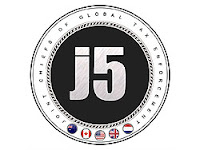According to Law360, a foreign citizen living abroad who sold her share in a U.S. partnership that sold 5-Hour Energy drinks owed federal income tax on $6.5 million in gains stemming from the partnership's sale of inventory, the U.S. government told the D.C. Circuit in he case is Rawat v. Commissioner of Internal Revenue, case number 23-1142, in the U.S. Court of Appeals for the District of Columbia Circuit.
While Indu Rawat claimed that the inventory gains, like her partnership interest, should have been taxed as her personal property in the country where she lives, the government argued in a brief Tuesday that the gains were subject to an exception for inventory property.
Income from personal property sales, including partnership interests, by nonresidents is generally sourced to the country where the taxpayer lives and is therefore not taxable under Internal Revenue Code Section 865(a)(2), according to the brief. However, Rawat's gains are governed by an exception under IRC Section 865(b)(1) , which says income from the sale of inventory is subject to taxation according to the location where the inventory was produced, purchased or sold — in Rawat's case, in the U.S., the government said.
Furthermore, IRC Sections 751 and 741, which govern inventory items and gains and losses, require that in a partnership sale, the income from inventory sales should be severed from the gain of the sale and treated separately and as an inventory sale, the government said.
The Sale Of Her Partnership Interest Attributable To
Rawat, a Canadian citizen who lived in India, sold her 29% interest in Innovation Ventures LLC, a U.S. partnership that sold consumer products including the energy drinks, in 2008 for a $438 million promissory note, according to the brief. The partnership later sold inventory for $22.3 million, of which $6.5 million was Rawat's share.
After an IRS audit of the partnership's returns, the agency determined Rawat owed $2.3 million in taxes on the inventory gain. Rawat paid the tax, plus penalties and interest, and challenged the agency's determination in U.S. Tax Court, which in May sided with the IRS and denied Rawat a $2.9 million refund.
Rawat's appeal of the decision to the D.C. Circuit incorrectly argues that IRC Section 741 allows her partnership interest to be classified as a single interest in a capital asset, the government said. Rawat's argument ignores the law's explicit exemption for inventory items, according to the government.
Furthermore, Rawat wrongly claims that her sale of the partnership stake wasn't connected to the U.S.-based business of selling energy drinks, relieving her of the requirement to pay tax to the U.S., the government said. She argued that while she is considered to be in the energy drink business, her gain was derived from the sale of the partnership interest.
But That Is Only True With Respect To Her Noninventory
Gain Under The Inventory Exception Laid Out In
IRC Section 865, The Government Said.
Rawat also incorrectly invoked "the entity theory" of partnership law to conclude that the income from her property shouldn't be separated from the rest of her profits for tax purposes, the government said. However, the Tax Court correctly held that the exception for inventory property applies, according to the government.
Have an IRS Tax Problem?
Contact the Tax Lawyers at
www.TaxAid.com or www.OVDPLaw.com
or Toll Free at 888 8TAXAID (888-882-9243)
Read more at: Tax Times blog











